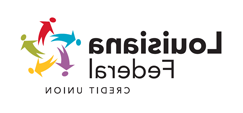.png?width=614&height=410&name=Blog%20header%20(18).png)
If you or someone you know receives or qualifies for Medicare, stay vigilant.
The Louisiana Department of Insurance Senior Health Insurance Information Program (SHIIP) wants to remind older adults to stay cautious and watch out for scams and pushy sales tactics now until December 7.
Why are scammers targeting senior citizens?
Out of all the generations in the United States, Baby Boomers have the highest household net worth.
'How are they bringing in so much money?' you may ask. Here's the breakdown:
Defined by the Federal Reserve as being born between 1946 and 1964 (currently in the ages between 59 and 77), Baby Boomers are in often at the end of their career or early into retirement. Also, Baby Boomers hold over half of the wealth in the United States. See the graph below for a breakdown of wealth per generation:
.png?width=783&height=587&name=Generational%20Wealth%20Bar%20Graph%20(4).png)
So, scammers go after those who are likely to have more money. And what is the scam of choice at the end of the year? Medicare Open Enrollment.
"Medicare Open Enrollment is when seniors decide on health coverage," explained SHIIP Director Vicki Dufrene. "But it's also a time when people get lots of calls, ads, emails, and mail."
Scammers might try enrolling seniors in new plans through tricky calls. Some agents use marketers to promise better plans, but often, it results in seniors getting a worse deal. SHIIP warns seniors to ignore calls offering help to switch plans and other scams. According to the National Council on Aging, Medicare and Medicaid fraud costs over $100 billion each year.
Stay safe from Medicare Scams.
Scammers are good at their craft. While we may not always be able to spot a person fishing for personal information, it is important to stay vigilant and follow these steps:
-
Avoid talking to unknown callers. Don't chat with unknown callers talking about Medicare. The less you talk with strangers on the phone, the less likely you are to chat with a scammer.
-
Keep personal info safe. Don't share your name, Medicare number, or Social Security Number with unknown callers. Scammers can misuse this info to change your plan without you knowing.
-
Check caller info. If you get a call about Medicare, ask for the caller's name and license number. Then, report your experience to Medicare or SHIIP.
-
Report any unexpected plan changes. If you find your plan changed without your knowledge, contact SHIIP to help reverse the change through Medicare.
-
Get trusted advice. For Medicare questions, contact reliable sources like SHIIP or the Senior Medicare Patrol.
If you think a scam happened or you're worried about being a victim, call SHIIP at 1-800-259-5300 or the Senior Medicare Patrol at 877-272-8720, or visit www.stopmedicarefraud.org.
Like this article? Subscribe to our blog and have great financial insights delivered to your inbox weekly.





